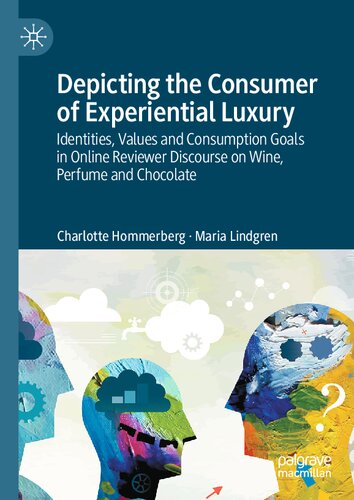

Most ebook files are in PDF format, so you can easily read them using various software such as Foxit Reader or directly on the Google Chrome browser.
Some ebook files are released by publishers in other formats such as .awz, .mobi, .epub, .fb2, etc. You may need to install specific software to read these formats on mobile/PC, such as Calibre.
Please read the tutorial at this link: https://ebookbell.com/faq
We offer FREE conversion to the popular formats you request; however, this may take some time. Therefore, right after payment, please email us, and we will try to provide the service as quickly as possible.
For some exceptional file formats or broken links (if any), please refrain from opening any disputes. Instead, email us first, and we will try to assist within a maximum of 6 hours.
EbookBell Team

4.0
86 reviewsThis book sheds light on the addressees of online reviewer discourse on wine, perfume and chocolate in order to explore how the discourse construes the consumer of experiential luxury. In the 21st century, luxury is more complex than ever before. Luxury products have become more affordable and hence accessible to new markets and consumer segments, and the groups of consumers seeking luxury experiences are more heterogeneous than ever. Yet, consumption choices as well as how these are thought about, evaluated and talked about still function to position consumers with respect to both how they see themselves and how they want others to see them. Many consumers seek to consume in subtle and sophisticated ways. They strive to develop consumption expertise with a view to maximizing their enjoyment from the luxury experience, avoiding overt displays of wealth while signalling status by means of luxury insight only available to the cognoscenti. One way for aficionados to develop their insight into the diversified and elusive realm of contemporary luxury is to engage with online reviewer discourse. The authors take a discourse analytic approach informed by the Appraisal model to expose the imagined addressees’ characteristics and behaviour, the luxury values they embrace and the goals of their luxury consumption. The authors argue that the activity of online reviewers is such a crucial arena in contemporary luxury that a new form of luxury consumption has emerged, which they label review-based luxury. This book will be of interest to students and academics in the fields of Linguistics, Discourse Analysis, Communication, Argumentation, Media Studies and Marketing, as well as anyone with a general interest in wine, perfume and chocolate as experiential luxury.